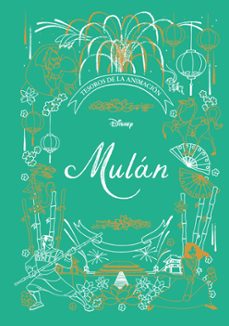📗 Libro en inglés A BRIEF HISTORY OF BRITISH SEA POWER: HOW BRITAIN BECAME SOVEREIG N OF THE SEAS
ROBINSON PUBLISHING LTD.- 9781841197920
Sinopsis de A BRIEF HISTORY OF BRITISH SEA POWER: HOW BRITAIN BECAME SOVEREIG N OF THE SEAS
The British did not take to water like ducks. In this work, David Howarth reveals that for hundreds of years this island nation did little but cling to coastal waters, and had no notion of sailing, or of anything but clinker built ships. The Romans and Vikings were superior seamen, and the English upper classes saw seafearing as mercantile, and beneath their notice. It was not until Elizabeth I's reign that Britain's success at sea truly began, with the utter defeat of the Armada thanks to superior gunnery and seamanship. Other nations placed noblemen and soldiers in command, but Elizabeth entrusted her ships to practical seamen such as Hawkins and Drake - and they repaid her trust. Howarth reconstructs the expansion of trade routes and the great 18th-century days of the line of battle ships, when sea warfare was at its peak. With Napoleon's fall, the British were free to expand and cement their empire, and the prestige of the Royal Navy rose so high that sea warfare almost ceased for a century as British ships patrolled the oceans. In the 20th century the British navy was twice as big as any other and more than half the merchant shipping in the world was built and owned in Britain. This account is full of anecdote, erudition and humour.
Ficha técnica
Editorial: Robinson Publishing Ltd.
ISBN: 9781841197920
Idioma: Inglés
Número de páginas: 464
Tiempo de lectura:
9h 36m
Encuadernación: Tapa blanda
Fecha de lanzamiento: 23/09/2003
Año de edición: 2003
Plaza de edición: Londres
Especificaciones del producto
Escrito por David Howarth
David Howarth Londres (Reino Unido), 1912 - Chichester (Reino Unido), 1991 comparte: Facebook Twitter Pinterest Email Compartir Fue un oficial naval británico, constructor de barcos, historiador y escritor. Tras graduarse en la Universidad de Cambridge, trabajó como corresponsal de guerra en la BBC Radio, al comienzo de la Segunda Guerra Mundial. Se unió a la Marina después de la caída de Francia y sirvió en la Dirección de Operaciones Especiales (DOE), donde ayudó a establecer el Shetland Bus, una operación tripulada por noruegos que ejecutaron una ruta clandestina entre las islas Shetland y Noruega. Howarth era el segundo al mando en la base naval en las Shetland. Durante la Segunda Guerra Mundial dirigió una compleja red de espionaje, que más tarde sería la inspiración de varios de sus libros, como The Shetland Bus, su primer éxito, o Nosotros morimos solos. Por sus contribuciones a las operaciones de espionaje contra la ocupación alemana de Noruega, Howarth recibió la Cruz de la Libertad del Rey Haakon VII y fue nombrado por el rey noruego caballero de primera clase de la Orden de San Olaf. Una vez finalizada la guerra, escribió más de una veintena de libros sobre historia naval y militar, entre los que destaca Nosotros morimos solos. Su estilo narrativo es apasionante: uno casi puede oír el aullido del viento ártico, quedar cegado por la nieve y sentir la congelación de las extremidades. Tan vívido como el reflejo de la valentía personal del infatigable Jan Baalsrud es el del devastador impacto de la guerra en un puñado de remotos pueblos pesqueros noruegos.
Descubre más sobre David Howarth Recibe novedades de David Howarth directamente en tu email
Opiniones sobre A BRIEF HISTORY OF BRITISH SEA POWER: HOW BRITAIN BECAME SOVEREIG N OF THE SEAS
¡Sólo por opinar entras en el sorteo mensual de tres tarjetas regalo valoradas en 20€*!






























